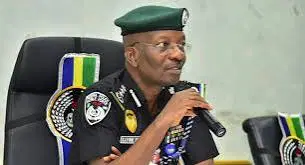No fewer than 40 million telephone lines were barred by telecommunication operators over the weekend following the expiration of the February 28, 2024 deadline issued by the Nigerian Communications Commission mandating telecom consumers to link the Subscriber Identity Module to their National Identity Numbers.
This represents a 28 million increase from the 12 million telephone lines initially planned to be deactivated by telcos, following the NCC directive.
In a December 2023 notice, the NCC had asked telcos to bar SIMs that had not been linked to their owners’ NINs by February 28, 2024.
On Thursday, the NCC Director of Public Affairs, Reuben Mouka, ruled out an extension of the deadline, warning that telcos that failed to enforce the deadline would be sanctioned.
The Chairman of the Association of Licensed Telecommunications Operators of Nigeria, Gbenga Adebayo, then disclosed that telcos would bar 12 million lines as a result of the directive.
However, on Sunday, the ALTON chair revealed that the number of barred lines had risen to 40 million, pointing out that SIMs without NIN were included in the number.
In an interview , Adebayo said, “I can tell you that over 40 million lines have been blocked and the affected customers are those who didn’t submit their NIN at all. Some persons have not presented any NIN to operators. They haven’t registered their SIMs or participated in the harmonisation programme. They simply haven’t made any presentation of the NIN number to their operators and those were the persons blocked. So why is the number so alarming despite repeated warnings? It shows many people still communicate but are not registered.”
In the December 2023 notice, the NCC had also asked the Global Satellite Mobile Communications operators to bar SIMs holders whose NINs have been submitted but not verified by March 29, 2024; and interdict those who have less than five lines linked to an unverified NIN by April 15, 2024.
The Federal Government had, on December 16, 2020, introduced the SIM-NIN synchronisation initiative meant to enable security agencies to track criminals.
The synchronisation involves validating the NIN with the National Identity Management Commission and matching the subscriber’s NIN records with the SIM registration information (verification) to ensure proper subscriber identification.
However, Nigerians have raised questions on why security agencies have not used the SIM-NIN linkage to track criminals, especially bandits and kidnappers, who often use mobile telephone lines to speak with victims’ families during ransom negotiations.
Presently, there are 224.7 million active mobile telephone lines in the country, according to the information released by the NCC on its website.
On Sunday, the ALTON chairman did not give the breakdown of subscribers or SIMs that were deactivated by telcos over the weekend.
He said, “No, we currently don’t have the breakdown of disconnected lines per network right now but I know over 40 million lines have been deactivated.”
Adebayo further hinted that another series of disconnections would be implemented by the end of the month and mid April.
Adebayo said, “The second tier of disconnections that will happen are those who have provided NIN but have more than five Mobile Subscription Identification Numbers associated with their NIN, and these have not been verified. This is because some have differences in the order of their names, and some have differences in their date of birth. The information provided to the operator when they did the SIM registration is different from what they provided (to NIMC) when they did their NIN. Some subscribers also have some differences in other records that are very critical to their verification process.
“So these people who have more than five MSINs attached to their NIN and haven’t been verified will be disconnected effective March 30, 2024. So we may have more disconnections happening by the end of this month. If somebody has given a name that has not been verified and has been receiving text messages to verify and they haven’t done that, by March 30th, those people will be disconnected and the figures will further increase.”
He explained, “There are two sources of data-primary and secondary. During the first registration process, the customer’s information is on-boarded to a server when everyone did the SIM registration but the secondary record is for details given during NIN. Hence your primary record has to be uniform with the secondary data across the platforms before you can be verified.
“Furthermore, for those who have less than five MSINs, by April 15th, they will be disconnected if they don’t harmonise their records before then. So we are going to go through a series of disconnections or service suspensions over the next two months if people don’t follow the laid down regulations.”
Reacting, the President, National Association of Telecoms Subscribers, Adeolu Ogunbanjo, has said the body will seek redress in court on Thursday if the deadline is not extended.
Adeolu, who confirmed that the number of barred subscribers was above 12 million earlier indicated, asked the NCC to consider the plight of customers and grant a 31-day extension.
In an interview with on Sunday, he said, “We have appealed to the Nigerian Communication Commission to extend the deadline till March 31st. But if this is not done, we will observe the situation for the next three days, that is Monday to Wednesday and if this is not granted, we will have to file a case in court on Thursday.
“We have and still appealing that this deadline be extended. We understand their position concerning security issues but a 31-day extension would not harm anyone and that is why we didn’t ask for three months. The NCC boss should please give us this gift as a resumption gift and not punish subscribers.”
Advertisement





